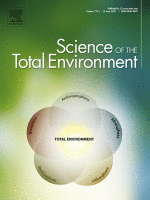
Agroecology ‘helps tackle zoonoses’
In addition to its better known advantages, taking an agroecological approach to crop protection can reduce the risk of the emergence of viral zoonoses, according to a study published by CIRAD researchers in the Science of the Total Environment journal.
Researchers from CIRAD, one of ENDURE’s French partners, analysed 300 scientific articles indicating that applying the principles of agroecology to crop protection methods tends to reduce the risk of viral zoonoses, while improving animal welfare, biodiversity and resilience to climate change.
The CIRAD website says that crop health is central to controlling the emergence of viral zoonoses, such as Covid-19, which are at the interface between human, animal and ecosystem health. Its website explains that these diseases are transmitted either by arthropod vectors, such as mosquitoes, or by vertebrate reservoirs, crop pests, or pest predators.
“When we talk about zoonoses, we focus on human and animal health, and too often we overlook the importance of plant health, in particular that of cultivated plants,” lead author Alain Ratnadass told the website. “But many crop pests are virus carriers, such as rodents. This makes crop protection practices an important link in the chain of disease emergence.”
The CIRAD website explains that agroecological crop protection builds on the principles of agroecology to redesign agroecosystems that are resilient to pests and diseases, with a focus on improving soil health and developing biodiversity in and around cultivated land.
“Agroecological crop protection is based on the natural regulation of pests, fostering interactions between plant, animal and microbial communities,” co-author Jean-Philippe Deguine told the website. “For example, to manage pests, we encourage biological control through conservation, by incorporating habitats that are favourable to the natural enemies of these pests. This approach enables crops to be grown with little or no pesticide use, and this is what we are striving to demonstrate in the fruit and vegetable cropping systems we are studying in Réunion.”
CIRAD says that the review of scientific articles establishing the actual or potential impacts of different crop protection techniques on the emergence of viral zoonoses has helped to identify a clear trend: conventional crop protection practices, using pesticides and inputs, ultimately increase the risks of virus emergence, whereas agroecological crop protection reduces these risks.
“Applying the principles of agroecology to crop protection reduces the risks of viral zoonoses,” Alain told the website. “Our work also reveals that agroecological crop protection has positive impacts on biodiversity, resilience to climate change and animal welfare.”
CIRAD reports that though this initial research has focused on viral zoonoses, the scientists suggest that similar findings could be obtained for bacterial and parasitic infectious diseases.
For more information:
- Read the full story on the CIRAD website here
- Read the article (subscription or payment required): Alain Ratnadass and Jean-Philippe Deguine. 2021. Crop protection practices and viral zoonotic risks within a One Health framework. Science of the Total Environment 774: 145172.
Last update: 24/05/2023 - ENDURE © 2009 - Contact ENDURE - Disclaimer
